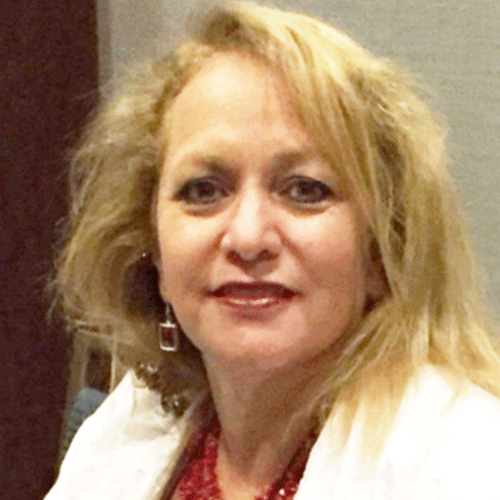Patricia Juárez comes to the Spanish/English Interpretation program having spent a career as a bilingual teacher in the Sacramento area. We spoke to her about her experience in the program and why she decided to pursue a new career.
What was your career background prior to joining the program?
My father used to tell me, "Sacramento was just one point on a map," so I always tried to travel. After graduating from the University of Minnesota, I traveled to several countries to study language around the world. I studied in Morocco, Egypt, Mexico and Spain, before settling back close to home in Watsonville where I began working as a language teacher. I've been here ever since working as a bilingual teacher for the last 20 years.
What made you want to pursue training in Spanish/English Interpretation?
There's a certain point when you study language, it just gets to be more grammar and more literature, so this program looked interesting to me as something different. Every week there was a different case so it's really been a great way to build vocabulary and fluency.
How is it different teaching language versus interpreting?
It's different in a few ways. One example is in interpreting, you really must pay attention to register. Especially in legal interpretation, you must make sure you're not being too casual. If the attorney is being formal you must be formal too. You can't paraphrase, you have to say exactly what that person is saying in the same tone. So, if they're using slang you must do that as well.
What were some of your favorite moments from the program?
On of my instructors, Eric Bishop, would give us feedback every week. He'd give us written and taped feedback on what we said during an assignment. So, he would listen to our recorded assignments, pause and give us feedback on those segments where we needed help. He had to do that with every student, so it took a lot of dedication.
What are some of the skills you gained in the program?
I've been a Spanish teacher for most of my career but even still this program really taught me how to quickly recite what someone said with accuracy. Speed is very important because you can only be about four or five words behind the person you're interpreting.
How was it taking a fully online course?
It has been an adjustment. I was worried about not being able to get that one-on-one feedback structure, but I really felt like I got great feedback here. The instructors really spend so much time answering questions online and always made themselves available for online video conferences.
What do you hope to do after you graduate?
I think post-teaching, maybe instead of going into substituting like a lot of retired teachers, I can be a court interpreter. Currently, I belong to the California Association of Bilingual Education and I've had the chance to do interpreting at our conferences. I've been doing keynote interpretation for the Association which has really helped fine tune my speed and fluency. So, I've had a lot of opportunity to interpret before I graduate. I believe the opportunities will go a long way in getting me ready for job opportunities once I complete the program.
